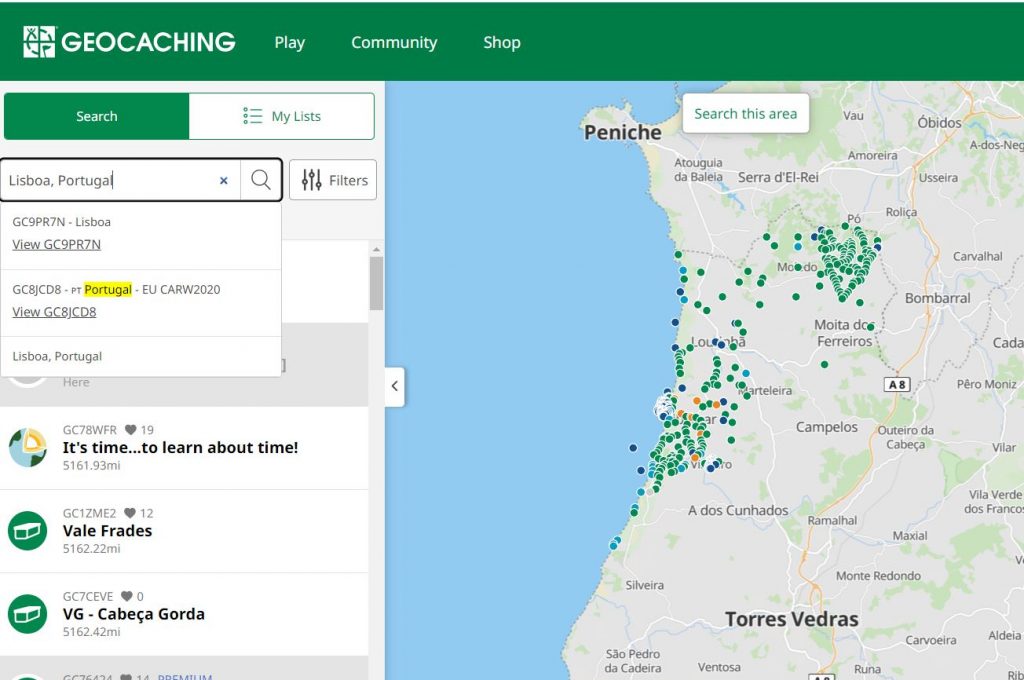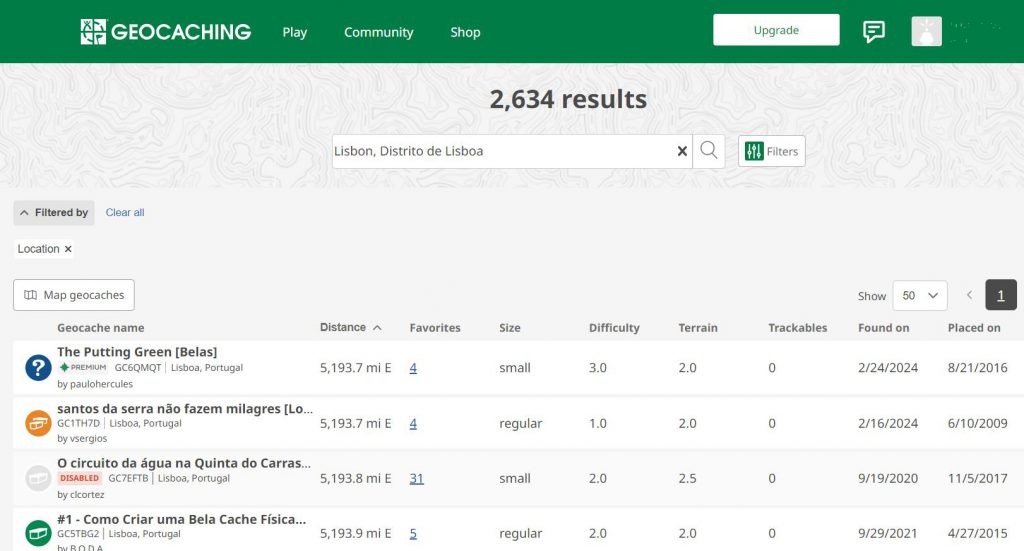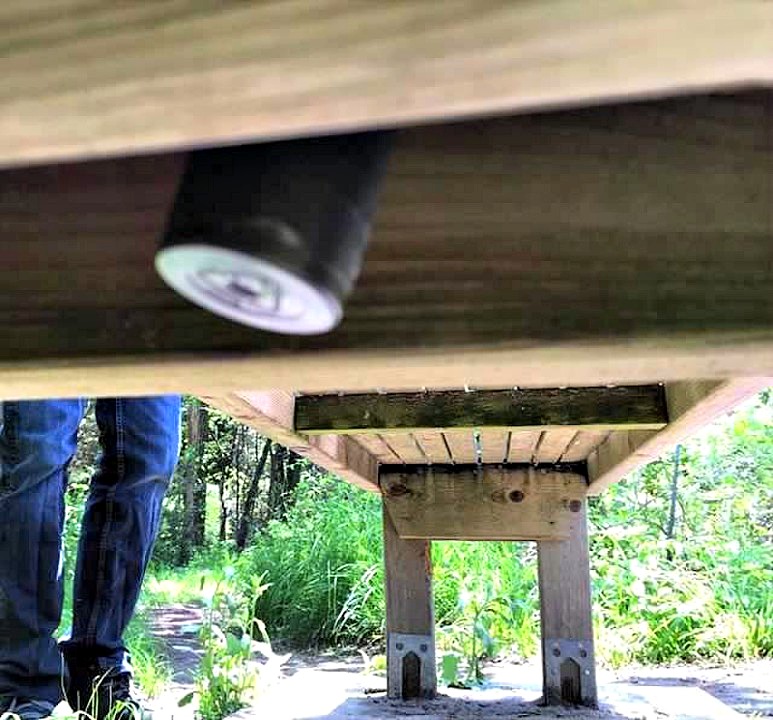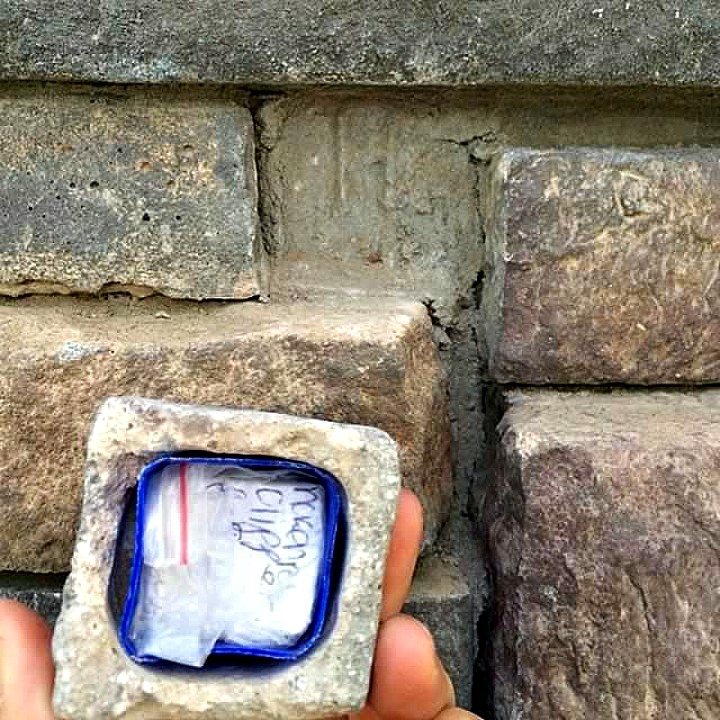To my surprise, I learned about the concept of geocaching yesterday thanks to the advice of Yuliya Kasparova. She recommended using it when traveling with children, but I think it’s incredibly interesting for adults too!
I looked into the details carefully—it’s truly fascinating! It turns out people have been playing this game since the year 2000, and I only just heard about it. That’s what it means to live and learn.
What is geocaching? It is a treasure hunting game in which some people create caches, upload their locations using GPS to a website, and other participants in the game have to find them.
The main idea is that someone hides a cache and indicates where it is, and someone else searches for it.
This game is popular worldwide. There are different levels of difficulty, sizes, and contents of the finds, as well as various rules.
You need to find the cache, mark in the logbook that you found it, or, according to other rules, take something for yourself and replace it with something else, and then report on the website that you found this geocache.
4o

Why is it interesting? Firstly, it makes travel even more exciting. You have a specific goal to achieve. I remember a similar thrill when we hiked the Camino de Santiago with the kids. To find the way, you had to spot scallop shells in the most unusual places. It added so much excitement!
The search brings the family together, and children love it. These caches are often hidden in places of cultural, architectural, or geological interest. Sometimes it turns into a full-blown quest: find one note that leads to another, with the next one providing another clue, and so on.
The difficulty levels vary: sometimes it’s simple, but sometimes you need to think hard. I think it’s a great twist to add to your travels.
To start playing, you need to register on Geocaching.com, create your account, find out which caches are hidden in the area you’re planning to visit, and that’s it! An adventurous journey is guaranteed.

This site has both free and paid versions. The paid version offers geocaches with higher Difficulty and Terrain ratings, access to over 10 types of geocaches, from Mystery to EarthCache, geocaches hidden exclusively for Premium members by the cache owner, the ability to download lists to save maps for offline use in the Geocaching app, and more.
Interesting facts about Geocaching:


- World’s Largest Logbook: The largest logbook for geocachers is located in Washington State, USA. The logbook is a massive piece of public art known as the “Fremont Troll” in Seattle, where geocachers sign their names on the troll itself.
- Space Geocache: The most distant geocache is not on Earth but in space! It’s located on the International Space Station (ISS) and was placed there by astronaut Richard Garriott in 2008.
- Geocaching Events: Geocaching has its own global events, like “Geocaching Mega-Events” and “Giga-Events,” where thousands of geocachers gather to participate in activities, share experiences, and find special event caches.
- Trackables: Many geocaches contain trackable items, such as Travel Bugs and Geocoins, which have unique tracking codes. Geocachers move these items from cache to cache, and their journeys can be tracked online.
- EarthCaches: EarthCaches are a special type of geocache that teaches visitors about a geological feature. Instead of finding a physical container, geocachers complete educational tasks and learn about Earth’s processes.
- CITO (Cache In Trash Out): Geocaching promotes environmental stewardship through CITO events. During these events, geocachers clean up parks, beaches, and other natural areas while searching for geocaches.
- First Geocache Ever: The first geocache, known as the “Original Stash,” was hidden in a bucket and contained a logbook, pencil, and various prizes. Its location is now marked with a plaque in Beavercreek, Oregon, USA.
- Virtual Caches: These are special types of geocaches that do not involve a physical container. Instead, geocachers must visit a location and complete specific tasks, often involving taking photos or answering questions about the location.
- Multi-Caches: These caches require geocachers to find multiple stages before reaching the final container. Each stage provides clues or coordinates to the next stage, adding an extra layer of adventure.
- Global Reach: Geocaching is practiced in over 190 countries, making it a truly global activity. There are geocaches on every continent, including Antarctica.
These facts showcase the diversity and excitement of geocaching, appealing to adventure seekers and nature lovers alike! It’s very much like a treasure hunt, and who among us didn’t want to find treasure as a child? This is a chance to make that dream come true!

